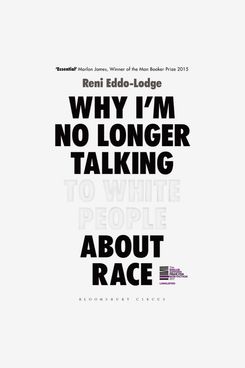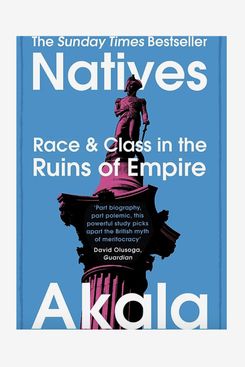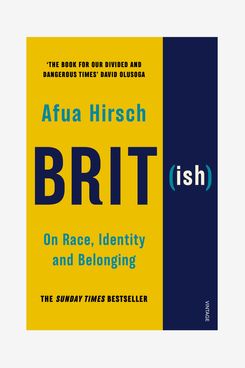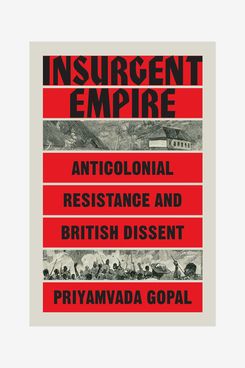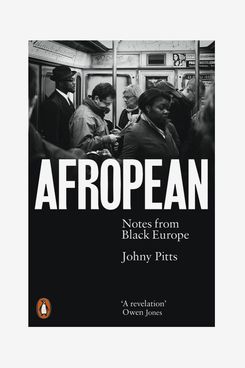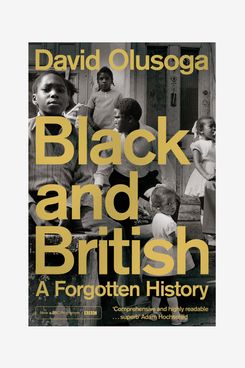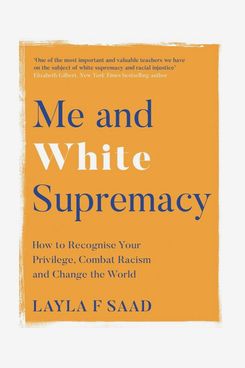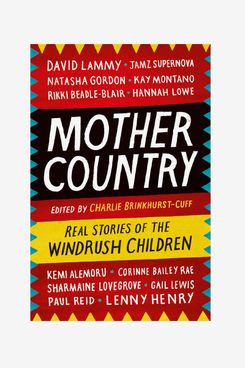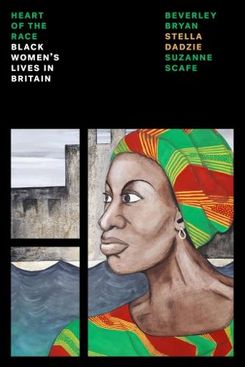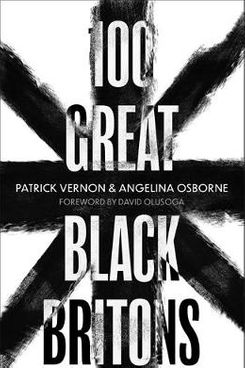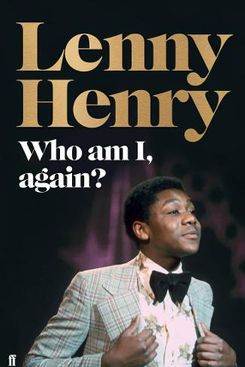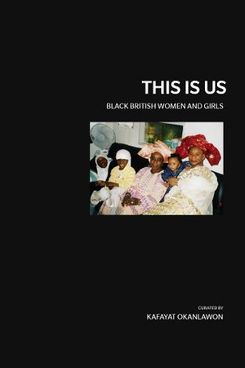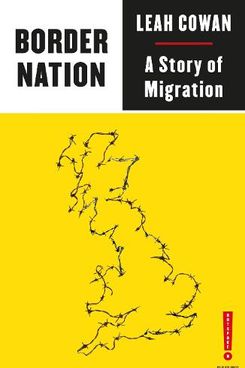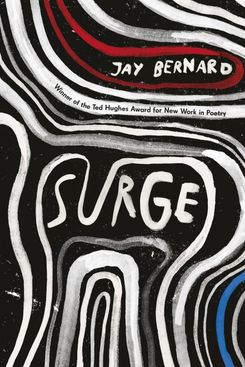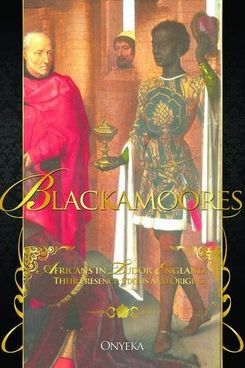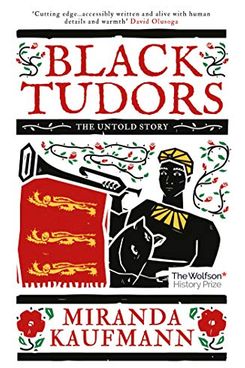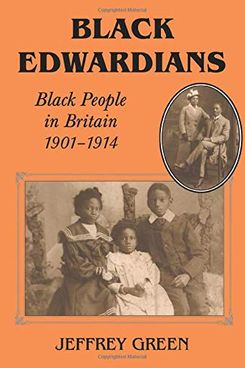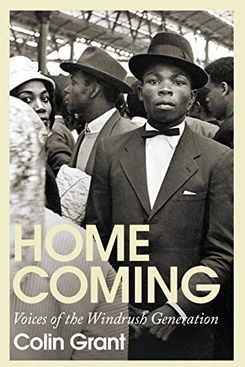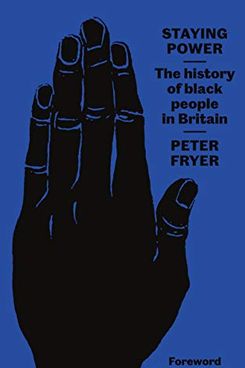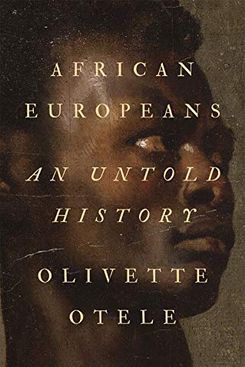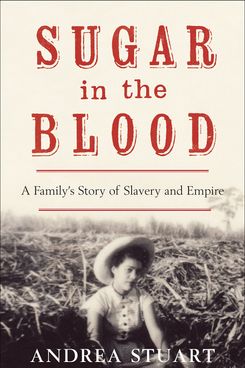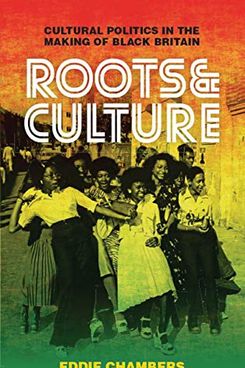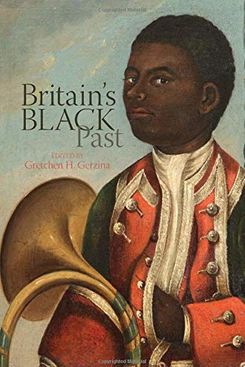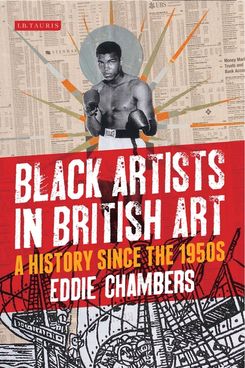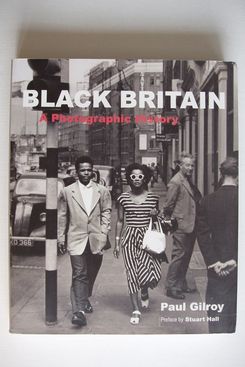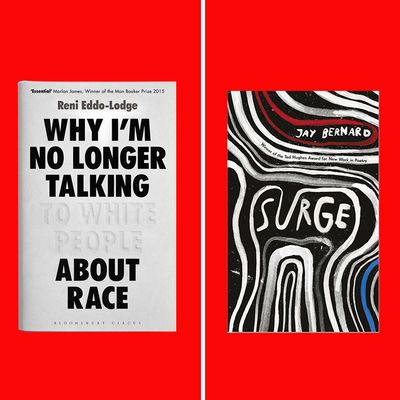
Demand for books and online resources outlining systemic racism skyrocketed during the resurgence of Black Lives Matter protests globally, after the murder of George Floyd in Minneapolis, in 2020. For many, it was the first time they had ever engaged with concepts of white privilege, police brutality and inequality fuelled by structural racism. Yet, the Black Lives Matter movement did not emerge in 2020, and the senseless murders of Black people at the hands of the police were happening at alarming rates before George Floyd’s death, both in the U.S. and elsewhere. Meanwhile, the institutional and structural racism spoken about during the BLM movement of 2020 remains aggressively present within the U.K. — despite the disputed findings of the Commission on Race and Ethnic Disparities in March 2021.
The timeline of the Black community’s plight, experiences, contributions and stories within the U.K. are an often overlooked part of British history. With this also comes an erasure of the historic (and current) systemic racism that has underpinned their experiences within the U.K., and outside it under colonial influence. As recommended by booksellers, publishers, activists, creative directors, cultural archive associations, editors, book clubs, and writers, we’ve compiled an evergreen and constantly evolving list of books on Black British history. From books dissecting the British Empire and colonialism, to historical accounts of the Black Tudor and Black Edwardian presence, and an essay collection about the Windrush generation, these books stand in opposition to the erasure of Black experiences from British history. Plus, they provide context to the conversations surrounding racism and white privilege happening today.
We’ve also covered the best anti-racist books, the best books about race for kids, and the best books for budding Black feminists. If you’re interested in supporting some U.K.-based, Black-owned businesses, we’ve compiled a list here.
New! You can now save this product for later.
Stemming from an article of the same name, Eddo-Lodge wrote for the Guardian in 2017, Why I’m … looks at the history of Black Britons, from the UK’s role in colonialism and slavery to the myth of a meritocracy in modern-day Britain. Using her own experiences, alongside digestible historical context, Eddo-Lodge explores the problems with white feminism, the arguments surrounding affirmative action, and why Black British history is so often missing from school curriculums. In 2020, during a spike in sales for her book — which saw the writer become the first Black British author to top the UK book charts — Eddo-Lodge asked those buying her book to match the price they paid with a donation to the Minnesota Freedom Fund.
Recommended by: Kojo Marfo, Creative Director at My Runway Group, Sade & Stephanie (founders of clothing company Everyday Froday), writer Chanté Joseph, Maja Antoine-Onikoyi (founder of The Education Project), the Jhalak Prize on Twitter.
New! You can now save this product for later.
Rapper, writer, and public speaker Akala’s work has long been a driving force in challenging racist attitudes in the UK — from his lyrics to his many widely viewed videos, such as his Oxford Union address — but perhaps never more so than in his debut book, Natives. Partly a biography, Akala discusses his experience growing up in a mixed-race family and the education he received from a pan-African Saturday school as a child. The writer also dissects structural racism in Britain through institutions like the education system, the police, and government.
Recommended by: Nii Ayikwei Parkes, Writer and Co-Founder of Flipped Eye Publishing, Magdalene Abraha, Editorial Manager at Jacaranda Books, Kojo Marfo, Creative Director at My Runway Group, Rochelle Dowden-Lord, Katie Packer and Soraya Bouazzaoui from the Main Characters podcast, Libreria Bookshop, Sade & Stephanie, Chanté Joseph, Sofia Akel (race-equality-in-education specialist), Maja Antoine-Onikoyi, the Jhalak Prize on Twitter.
New! You can now save this product for later.
After the toppling of Edward Colston’s Bristol statue in 2020, new conversations around the problems with memorialising racist figures from Britain’s past were sparked. With this — and the rejected findings of the 2021 Race Review by the Black community (and others), in mind, journalist Afua Hirsch’s debut book, Brit(ish) feels particularly relevant. Born in Nigeria to a Ghanaian mother and a British father, and then raised in London, here Hirsch confronts Britain’s violent, racist history. She asks what it means for Black people to constantly be questioned about their identity (“But where are you really from?”), mirrored by her own lived experiences. Through interviewing different groups of people, including members of the fascist English Defence League, Hirsch reflects and dissects the collective feelings and sentiments that rise to the forefront in response to the oppression and silencing cycle.
Recommended by: Fleur Sinclair and Jessie Downs from Sevenoaks Bookshop, Kojo Marfo, Creative Director at My Runway Group, Sade & Stephanie, Sofia Akel, @ThatNikkiB (lover of inclusive books and Programming + Participation lead at Civic Square), the Jhalak Prize on Twitter.
New! You can now save this product for later.
Another book which takes a confrontational look at Britain’s past, Insurgent Empire — from academic and reader at Cambridge University, Priyamvada Gopal — charts a lesser-known historical timeline that explores those who radically opposed the British Empire, including resistance in the Caribbean, Egypt and East Africa. By introducing readers to anti-imperialists from the past, Gopal traces a history of decolonisation efforts, the insurgents who spearheaded it, and how their legacies will live on.
Recommended by: @ThatNikkiBi.
New! You can now save this product for later.
Tracing an alternative map of Europe, Afropean takes Johny Pitts around the continent to explore what it means to be of African descent for people in different European countries. From a disenfranchised Cape Verdean sub-town on the outskirts of Lisbon, to an area of Stockholm that’s predominantly Muslim, Pitts aims to give a new voice to communities he deems “Afropeans” like himself. Exploring the cultures that make up his own heritage, Pitts interviews a variety of people who make up “Afropea,” making for a wide-ranging, unique account of identity in Europe. Afropean was the winner of 2020’s Jhalak prize, the literary award for Black, Asian and other ethnic minority writers, (which Why I’m No Longer Talking to White People About Race has also been the recipient of).
Recommended by: @ThatNikkiBi, Maja Antoine-Onikoyi, the Jhalak Prize on Twitter.
New! You can now save this product for later.
Following a series of programmes with the BBC, historian and broadcaster David Olusoga published Black and British: A Forgotten History. The book was met with immediate acclaim, long listed for the Orwell Prize and shortlisted for the Jhalak Prize. By reexamining Britain’s history through a new lens, Olusoga draws on a range of research to explain Britain’s role in the transatlantic slave trade, the Black Britons who fought for their country in World War II, and more. This is an essential read for anyone dissatisfied with the whitewashed history they may have learned in conventional education; Olusoga traces a direct and inextricable relationship between the British Isles and the people of Africa and the Caribbean.
Recommended by: Rochelle Dowden-Lord, Katie Packer and Soraya Bouazzaoui from the Main Characters podcast, Fleur Sinclair and Jessie Downs from Sevenoaks Bookshop, Kojo Marfo, Creative Director at My Runway Group, Dr. Miranda Kaufmann, Michael Ohajuru, Dr. Miranda Kaufmann, and Prof. Philip Murphy from Black British History at the Institute of Commonwealth Studies, Nii Ayikwei Parkes, Writer and Co-Founder of Flipped Eye Publishing, Round Table Books, Libreria Bookshop, Maja Antoine-Onikoyi, Sofia Akel, the Jhalak Prize on Twitter, Dee from The Black Feminist Bookshop. You can shop the Black Feminist Bookshop (via Bookshop) here, or sign up to their Patreon here.
New! You can now save this product for later.
Beginning as a hashtag and Instagram challenge, Me and White Supremacy is a 28-day guide that encourages white people to confront structural racism, and how they’ve benefited from it. Delving into subjects like tone policing, white fragility, ‘colour blindness’, and cultural appropriation, Saad incorporates historical context of systemic racism with her own experiences growing up in the UK, as well as offering individual and collective ways in which white people can improve their allyship.
Recommended by: Maja Antoine-Onikoyi.
New! You can now save this product for later.
In 1948, a ship known as the HMT Empire Windrush brought 802 migrants from Caribbean countries to the UK to work, an incentive offered by the British government, as the UK experienced a labour shortage in the aftermath of WW2. In 2018, at least 83 of those known as the Windrush generation were betrayed by the same country that seemingly promised to welcome them with open arms; many of them were deported to countries where they had never set foot and did not know the language. In this collection of stories edited by Charlie Brinkhurst-Cuff — the former editor-in-chief at gal-dem — readers hear from members of the Windrush generation, their children, and grandchildren about their experiences in Britain. Contributors include David Lammy, Corinne Bailey Rae, and Lenny Henry.
Recommended by: Carolynn Bain from Afrori Books, Melissa Cummings-Quarry (co-founder of Black Girls’ Book Club), Sofia Akel, the Jhalak Prize on Twitter.
New! You can now save this product for later.
A collection of stories about these women throughout history, Heart Of The Race exists as a “corrective history” text, where Black women and the British state’s roots in slavery, colonialism and empire are closely and violently linked. It documents the personal, education, work, healthcare and political struggles of these women, as well as their journeys with identity and community. It also gives a voice to Black women’s place in UK history, a pushback against the status quo, where that voice is often silenced. First published in 1985, it won the Martin Luther King Memorial Prize that same year.
The most recent edition of this book includes an interview with the authors by Heidi Mirza, where they take a look back at the impact of the book since the ’80s, and its continued influence. There’s also an introduction by Lola Okolosie in the latest version, too.
Recommended by: Dee from The Black Feminist Bookshop. You can shop the Black Feminist Bookshop (via Bookshop) here, or sign up to their Patreon here.
New! You can now save this product for later.
This book was conceived from a poll by the author, where he urged people to vote for their “favourite” Black Briton. He had become frustrated with the erasure of Black Britons from British history, despite having had a presence here for at least 1,000 years. A divestment from “typical Britishness,” the text includes Black nuance, documenting Black Brits with extraordinary lives and bodies of work behind them. As a result of Vernon’s poll, and then, this book, Black figures started being included in the National Curriculum, and some were even honoured with statues. In response, the Royal College of Nursing also gave the Jamaican-born Mary Seacole — who’s often left out of conversions to do with outstanding nurses during the war effort — the same “status” as Florence Nightingale.
Recommended by: Carolynn Bain from Afrori Books, Michael Ohajuru, Dr. Miranda Kaufmann, and Prof. Philip Murphy from Black British History at the Institute of Commonwealth Studies, Fleur Sinclair and Jessie Downs from Sevenoaks Bookshop.
New! You can now save this product for later.
This coming of age story doesn’t follow a typical autobiographical format, including segues into recipes, comic strips, and advice for aspiring comedians in parts, in Lenny Henry’s true energetic style. It paints a picture of Henry’s life from the mid ’70s, as a “a gangly black 16-year-old from Dudley,” following him through to adulthood as he moves through his career. With tons of comedic relief, sections that you’ll feel in your gut, and unadulterated honesty throughout, all underpinned by thoughtful inspiration, this story of a famous and well loved Black British figure sheds light on the bigger picture.
Recommended by: Carolynn Bain from Afrori Books.
New! You can now save this product for later.
A collection of poems that span across generations, this book is a collective telling of the UK experience for Black women and girls through their highs and lows. The author compiled a rich tapestry of multigenerational Black female experiences by collecting stories from friends, family, the friends of friends, and even strangers, too. The launch of this work marked the 20th birthday of Imkaan, the only UK organisation dedicated to addressing violence against Black and other minority women. Executive Director of Imkaan, Marai Laras opens This is Us with a foreword by her, and 10 percent of profits will be donated to their cause.
Recommend by: Dee from The Black Feminist Bookshop. You can shop the Black Feminist Bookshop (via Bookshop) here, or sign up to their Patreon here.
New! You can now save this product for later.
Cowan delves into resistance movements against deportations, the rise in racist attacks after the Brexit referendum, corporate profiteering from borders, and the erecting of borders through legislation. Cowan examines migrant-led demonstrations, some from inside detention centres, and cross-border solidarity campaigns. Cowan presents us with a wider snapshot of how racism intersects and strengthens metaphorical and physical borders, while highlighting the movements and purpose built to resist these.
Recommended by: Culture editor at gal-dem, Kemi Alemoru.
New! You can now save this product for later.
Long-listed for the Jhalak Prize in 2020, and winner of the Sunday Times & University of Warwick Young Writer of the Year Award in the same year, this book is a poetic account of the New Cross Fire. Thirteen people died at the house fire in 1981, which was believed to have been set intentionally, as a racist attack. As official state institutions within the U.K., including the police, failed to take the incident seriously and turned a blind eye, tensions rose, and the incident serves as a historical landmark in the fraught relationship between the Black community and the British state, where the power balance is disproportionately skewed. Bernard’s prose transcends timelines as he draws parallels between the New Cross Fire of ’81 and the Grenfell tower block fire of 2017, where majority Black and other people of colour lived and lost their lives. He evokes voices of the past and present against a backdrop of Jamaican dancehall rhythms and patios, weaving historical patterns with the recent past.
Recommended by: Dee from The Black Feminist Bookshop. You can shop the Black Feminist Bookshop (via Bookshop) here, or sign up to their Patreon here.
New! You can now save this product for later.
This book exists in direct contrast to the many books that only document the presence of Africans in Tudor Britain in a slave or “transient immigrant” capacity. Dr Onyeka Nubia takes a wider view of the Black experience of the time, to include the atypical experiences of those who were highly skilled, and occupied important professions under powerful people and institutions, too. With his sources ranging from digitised and printed manuscripts, including lesser known archives, some of the events and people documented in this book have never been discussed before.
Recommended by: Michael Ohajuru, Dr. Miranda Kaufmann, and Prof. Philip Murphy from Black British History at the Institute of Commonwealth Studies.
New! You can now save this product for later.
Another documentation of Black Tudors. Here, the author unearths “forgotten records” and highlights the lives of Black people who lived as free men between 1485 and 1603. According to the text, some of these Black tudors were paid equal wages, and married, christened and buried within the Catholic Church. It’s an engrossing read on a part of history that’s usually omitted from retellings of the Tudor period.
Recommended by: Michael Ohajuru and Prof. Philip Murphy from Black British History at the Institute of Commonwealth Studies.
New! You can now save this product for later.
Green uses sources from historical and contemporary newspapers, memoirs, oral history, archive documents, photographs and family papers to piece together the lives of historical Black figures from Edwardian Britain, from high society to the working classes.
Recommended by: Michael Ohajuru, Dr. Miranda Kaufmann, and Prof. Philip Murphy from Black British History at the Institute of Commonwealth Studies.
New! You can now save this product for later.
This amalgamation of stories from Black people from the West Indies who came to the U.K. between the ’40s and the early ’60s approaches postwar British life from an angle that’s typically been overlooked. The book covers a timeline that spans from the energetic, collective optimism felt by the first arrivals, to the transition from the optimism of the first post-war arrivals to the reality of race riots in the late 1950s. It includes accounts from teachers, bus drivers, nurses, seamstresses, boat workers and interracial couples across the U.K., full of the laughs, anger, pain, hope, regret, struggles, triumphs, and hope that makes up the Caribbean British experience.
Recommended by: Kojo Marfo, Creative Director at My Runway Group.
New! You can now save this product for later.
Written in the 1980s during a climate of race riots and racialised police brutality, this book takes a wide-lens view on the history of Black people in Britain, pushing all the way back to the Roman conquest, and including Henry VIII’s reign. It explores the lives of important figures, like Mary Seacole and abolitionist Olaudah Equiano, giving the reader snapshots of the Black British experience over 2,000 years.
Fryer showcases the influence of Black britons on tradition, culture, politics, social policy within Staying Power, and at the time of first publication, it stood as a strong counter to nationalist sentiment rooted in racism.
Recommended by: Michael Ohajuru, Dr. Miranda Kaufmann, and Prof. Philip Murphy from Black British History at the Institute of Commonwealth Studies.
New! You can now save this product for later.
Long-listed for the Orwell Prize for Political Writing, historian and professor Otele covers the relationship between Europe and Africa with detail and nuance. With a focus on ordinary individuals, emperors, enslaved people, migrants, Otele explores racism, citizenship, identity, power and resilience through a Black lens. From the Renaissance onwards, she journeys through Europe’s complex Black history without omitting uncomfortable truths.
Recommended by: Nii Ayikwei Parkes, Writer and Co-Founder of Flipped Eye Publishing, plus Michael Ohajuru, Dr. Miranda Kaufmann, and Prof. Philip Murphy from Black British History at the Institute of Commonwealth Studies.
New! You can now save this product for later.
Heavily researched and based on real events, this account of one family’s experience of the Barbadian slave trade under British colonial rule tells an unforgettable story. The concept that the U.K. was built on the sugar trade runs throughout, touching on the slave ports of Bristol and Liverpool.
It also draws links between the sugar trade and the industrial revolution. Stuart traces her family’s involvement in violent sugar trade across generations, exploring themes of abuse, liberation, a culture of extreme greed, and love in tumultuous climates that didn’t conform to societal standards of the time.
Recommended by: Michael Ohajuru, Dr. Miranda Kaufmann, and Prof. Philip Murphy from Black British History at the Institute of Commonwealth Studies.
New! You can now save this product for later.
This book documents the evolution of the Black British identity from the 1950s, through to the ’80s. The way cultural evolution underpinned that development of the Black British identity, feeding into art, music, theatre, poetry, and literature, is explored by Chambers throughout. The author chronicles the shift in language from “West Indians,” to “Afro Caribbeans,” to “Black British,” and the events and cultural musings surrounding these. From the rise of the West Indies cricket team to the impact of the Thatcherite era, this is a wide, rich documentation of the African diaspora’s (via the Carribean) journey and impact after they arrived in the U.K.
Recommended by: Magdalene Abraha, Editorial Manager at Jacaranda Books.
New! You can now save this product for later.
Built on Radio 4’s “Britain’s Black Past” series from 2017, this book compiles stories and analysis “through the lens of a recovered past.” With different chapters written by scholars, artists, and independent researchers, the book covers music development, the Scottish slave trade, and accounts from Morecombe Bay. Presenting information and stories in the form of plays, television scripts, including genealogy findings — Gerzina revives Britain’s Black past for public knowledge and recognition.
Recommended by: Michael Ohajuru, Dr. Miranda Kaufmann, and Prof. Philip Murphy from Black British History at the Institute of Commonwealth Studies.
New! You can now save this product for later.
Here, Chambers explores the work of Black artists from “the pioneering generation of artists,” like Ronald Moody, Aubrey Williams, and Frank Bowling. While also talking about the struggles and progression of Black art in Britain across generations, he evokes the work and lives of Steve McQueen, Chris Ofili, and Yinka Shonibare, to shine a light on the Black artistic greats of 20th century Britain.
Recommended by: Magdalene Abraha, Editorial Manager at Jacaranda Books, plus Michael Ohajuru, Dr. Miranda Kaufmann, and Prof. Philip Murphy from Black British History at the Institute of Commonwealth Studies.
New! You can now save this product for later.
Springboarding off the basis of Black people’s literal and factual presence in the U.K. for hundreds of years, professor Paul Gilroy — who’s known for his work on documenting Black British culture — presents a living visual history of Black social life in modern Britain. It presents the reader with a poignant visual history of Black Britain that educates, moves, and brings joy all at once.
Recommended by: Carolynn Bain from Afrori Books.
The Strategist UK is designed to surface the most useful, expert recommendations for things to buy across the vast e-commerce landscape. Read about who we are and what we do here. Our editors update links when possible, but note that deals can expire and all prices are subject to change.
